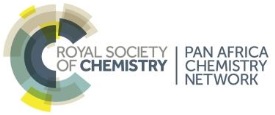Renewable and Sustainable Energy from the African Hot Sun: Can Materials Chemistry Help to Deliver?
03 – 05 October 2016
Kwame Nkrumah University of Science and Technology,
Kumasi, Ghana
Introduction
Ready availability of energy plays a pivotal role in economic and social development of all countries around the world. Access to cheap energy has brought great economic prosperity to many countries especially in the developed world. Many of the current sources of energy used globally have negative impacts on the environment. Hence there is ongoing debate about making energy systems more environmentally benign and sustainable. The discussion has largely centred on the nature of different energy sources and their likely impact on the environment. In the search for alternative energy, solar energy occupies an important place since it is abundant. However, it is not easily and economically exploited at the moment.In Africa, electrical energy is often inaccessible, unaffordable, or unreliable for many people. The availability of electricity supply in Africa lags far behind that of other continents. This limits development: students find it difficult to read after dark, clinics cannot refrigerate vaccines and businesses have shorter operating hours. Power rationing has become a common phenomenon in many African countries due to insufficient power generation. This affects the running of pieces of equipment which require 24 h power supply, leading to frequent breakdown of such equipment and interruption of some research programmes.
Solar resource is by far the single most abundant energy resource Africa has and if harnessed could meet all the electricity needs of Africa. Solar energy, falling freely from Africa’s skies to reach everywhere on the continent without transmission lines can be utilized to provide off-grid electricity to remote communities far from national grids, as well as utility scale electricity for industries. The challenge, however, is that the present cost of converting the solar energy to electricity and other forms of energy for easy use is prohibitive. New materials to efficiently absorb sunlight, new techniques to harness the full spectrum of wavelengths in solar radiation, and new approaches based on nanostructured architectures can revolutionize the technology used to produce solar electricity. The technological development and successful commercialization of single-crystal solar cells demonstrate the promise and practicality of photovoltaics, while novel approaches exploiting thin films, organic semiconductors, dye sensitization, and quantum dots offer fascinating new opportunities for cheaper, more efficient, longer-lasting systems. These can offer a future for the utilization of solar energy which abounds in large quantities into energy for sustainable development.
The main objective of this conference is to emphasize the importance of and showcase new developments in materials chemistry and its possible role for harnessing solar energy and providing energy for sustainable development. It is also aimed at promoting novel research and collaborations on materials chemistry by bringing together experts and interested parties from all over the world and from diverse bodies – from the academia to the industry and to governments.
Scientists and technologists who are interested and would like to participate in the conference should send their abstracts via email to pacn@knust.edu.gh and copy Johannes_awudza@yahoo.com before August 20, 2016.
Subthemes
Topics to be discussed at the conference will include:Harnessing Solar Energy for Sustainable Development
Materials for Harnessing Renewable Energy from the Sun
Inorganic Nanomaterials for Solar Cell Applications
Organic / Conducting Materials for Solar Cell Applications
Hybrid Solar Cell Materials for Energy Applications
Fabrication of Solar Cell Materials for Energy Applications
Renewable/Alternative Energy from Biomass
Scientific Committee
International Advisory Committee
Prof. Paul O’Brien, CBE, FRS, University of Manchester, UK, ChairmanProf. Richard Catlow, FRS, University College, London, UK
Prof. Peter Skabara, FRSC, University of Strathclyde, UK
Prof. Eric Garfunkel, Rutgers University, New Jersey, USA
Prof. Gabriel Centi, University of Messina, Sicily, Italy
Prof. Johannes A. M. Awudza, Kwame Nkrumah University of Science and Technology, Ghana
Prof. Neerish Revaprasadu, University of Zululand, South Africa
Prof. Peter Ndifon, University of Yaounde I, Cameroon
Dr. Helen Driver, Royal Society of Chemistry, UK
Local Organising Committee
Prof. Johannes A. M. Awudza, Department of Chemistry, KNUST, Kumasi, Ghana, ChairmanDr. Nathaniel Owusu Boadi, Department of Chemistry, KNUST, Kumasi, Ghana, Secretary
Dr. Godfred Darko, Head, Department of Chemistry, KNUST, Kumasi, Ghana
Prof. Evans Adei, Department of Chemistry, KNUST, Kumasi, Ghana
Dr. Richard Tia, Department of Chemistry, KNUST, Kumasi, Ghana
Dr. Francis K. Ampong, Department of Physics, KNUST, Kumasi, Ghana
Dr. Noah K. Asare-Donkor, Department of Chemistry, KNUST, Kumasi, Ghana
Dr. Marian Asantewah Nkansah, Department of Chemistry, KNUST, Kumasi, Ghana
Dr. Mrs. Mercy Badu, Department of Chemistry, KNUST, Kumasi, Ghana
Conference Fees
The conference fees payable by different categories of people are as follows:International Participants: $350.00 per person
Local (Ghanaian) Participants: $180.00 or GHC 700.00 per person
These amounts cover conference materials, lunches, snacks, cocktail (on first day), conference dinner (on second day) etc. They do not include accommodation and evening meals.
Note:
Use the abstract template attached to format your abstract before submission.










